TV director Fatimal-Zahraa devotes herself to harmonizing foreign and Arab culture works
Mrs. Fatimal-Zahraa Mohammed Hassan is a TV Director and media writer. She has been brought in a family with love for literature, a passion she haired in her appreciation of literature and arts. It was also represented in a dream achieved by studying Mass Communication at the University of Cairo, and working as a director for the Egyptian television’s first Arab cultural channel.
Q. TV director Mrs. Fatimal-Zahraa , We could start by asking you on that beginning:
• As soon as I was graduated at the Faculty of Mass Communication, Cairo University, Department of Radio and Television, I Worked for the TV Nile International channel, a channel telecasted in English and French and was a very important era because its orientation for non-Egyptian public was completely different in technique performance. Working there had given me an important experience.
After establishing The Nile Thematic Channels sector in 1997, I choose to work for Nile TV cultural channel. Its concept was a genius idea and a promising project, besides it was the first cultural channel in the Arab region and the Middle East. The channel dealt with the civilizations and cultural heritage of the people of Egypt accumulated from thousands of years ago, as well as communicated with different history, cultures, civilizations and people of the world.
We were a team of youth given the chance to establish a channel. We had the feeling it was our own child, a new love that let us all dream. A very distinctive cultural media figure, who also was youth; Mr. Gamal Al-Shaer, was our director, gave us great freedom to express our thoughts and dreams in our programs and we practiced early responsibility.
Then, theater was my major interest, and I was covering all its events for our TV channel, either experimental or Arab theater. I also directed a weekly program on the art of theater. This program was presented by the pioneering theatrical great artist Sa’ad Ardash. We succeeded to document the history of the Arab theater and explore its future. We hosted all playwrights, both Egyptians and Arabs in a series of up to 50 episodes.
For the cultural channel I opened a window of knowledge overlooking the Latin civilization, specifically Spanish. The activities held in the Cultural Spanish Center in Cairo was my responsibility. I even was encouraged to attend at Spanish classes organized by the center and got the advanced courses in Spanish language that made me more interactive with embassies and conferences convened by Spanish-speaking countries and in collaboration with the Faculty of Alson (languages) Spanish language department at the Universities of Ain Shams, in Cairo and El-Minya in Upper Egypt.
Q. Looking at the media scene of Egypt now, how do you evaluate it between the present reality and planned future?
• As media field members, we hoped to go beyond the stage of absolute subordination of the rigid control of authority over the performance of the media, particularly in the institutions of the state after the revolution of January 25, 2011, which is already a miracle turned all balances upside down, and already got great revolutionary achievements.
It started by the abolition of the Ministry of Information and changing all the leaders and editors in majors journalistic institutions; such as Al-Ahram newspaper, Al-Akhbar (The News) and Al-Gumhureyia (the Republic) and Rosal-yousef. Moderates editors were appointed and some of them have been elected, such as Mrs. Abla Ruwaini as the editor-in-chief of Akhbar Al-Adab weekly (The news of literature).
But surprisingly enough circumstances changed quickly, Ministry of Information was retained, and after the Muslim Brothers hold of power in Egyptian elections (the outcome of 51% votes out of the proportion of gone to vote, which means practically 10% of the value of the electoral Egyptian votes). Muslim Brothers appointed a minister who belongs to them, and he turned all media channels and papers to be devoted for the promotion of the President, and his decisions away from objectivity and impartiality as if we are back to square zero.
Q. This is the state of the governmental television, and the official media, what about the private channels that have flourished in Egypt and the Arab world, especially after being launched into a space without borders?
• I had experience with Al-Mehwar satellite channel in 2002. I sat up and directed a program entitled, and we covered all opera shows in Cairo. They included The Marriage of Figaro, Carmen, Zorba, Opera Aida, The Nutcracker and other great works. We were filming the day before the premiere, with the final stage of decorative, lighting, fashion and make-up settings. We used to meet heroes, choreographers and directors of shows, and eventually shoot clips of the final presentation, which telecasted for the program audience. This was an enriching experience. In fact, the work in the private sector provides great potential in cameras use, as well as editing procedures.
Q. While pondering your career, I see you traveled to 6 Asian countries, perhaps since childhood, what a coincidence for an Egyptian figure to travel from Iran, to China, India, Turkey, Kuwait and Syria.
• I spent a period of my childhood in Mashhad, Iran, nearly for three years, where my father worked as a professor of Arabic language at the Faculty of Arts there, and I remember how white snow was covering mountains, the beauty of the mosque of Imam Mousa Riza, where pilgrimages of Shiite Muslims are visiting the tomb of the great poet Omar Khayyam, beautiful memories of childhood still alive and sentimental.
Since I started working in media field, I was fond of visiting the countries of the ancient East. I felt they are very close to us as Arab and Oriental better than the West. We have common human values and traditions, and we are partners with them in shaping the face of human civilization in the ancient world. Perhaps the Pharaonic civilization is a living witness of those great ancient Egyptians and their creativity.
I had Asian tours to Turkey, Kuwait, Syria, where I visited the city of Aleppo and I hope that Syrian revolution succeed to stop Assad regime and its massacres committed against his own people.
On the far East, the Great Wall of China stands witness to the uniqueness and greatness of that Chinese civilization. In China I visited Beijing, the Chinese capital. I spent nice time in the Forbidden City and the Summer Palace. I also visited the Bird’s Nest Stadium where the Beijing Olympic was held in 2008 with a stunning opening.
The culmination of the Asian trips last summer trip was to India. I spent almost three weeks, as I visited Delhi the capital and the Taj Mahal in Agra and our tour in the province of Rajasthan in northern India included 9 cities: Pushkar, Piknar, and Jaislmer, Jaipur and Jodhpur, and Udaibor and Mandoa and other so we got to Agra to see the jewel of shrines architecture, in the Islamic Mughal era; Taj Mahal.
Q. From Asia to Africa I find that your major interest in writing is on the black continent, how did it began?
• I recall the struggler leader Nelson Mandela, the icon of determination and resistance in the world against apartheid, a great personality which incidentally is inspired – as he said – by Mahatma Gandhi whom lived and worked in Souuth Africa. Mandela is a philosophical believer in peaceful resistance and non-violence, that won him the Nobel Prize in peace. He was the 1st South African president after that transfer, from 1994 until 1999 and saw his country prosperous and democratic transition.
My interest in Africa started from the 2010 World Cup held in South Africa. It was the first time for an African country to receive this honor, and the fact that Egypt is an African country, plus having natural geographical and strategic links to 11 countries which share the basin of the great Nile River from upstream to downstream.
Q. You are one of the pillars of the Arabic version of ( TheAsiaN), There is no doubt that that readers of Next News Network realizes your passion for Africa and its rich culture, and your contribution on it. How do you evaluate this experience?
• Am very pleased to be working in The AsiaN; Next News Network, and I feel they make a great deal of balance and objectivity in the performance. The start is strong. The full network gathers professionalism, balanced character and honesty in transferring news. I am happily participating in this Arabic version. And I am confident that it will achieve more excellence and attendance soon.
Although it only completes its 1st first month on 11th of this month, it is still a fledgling distinct source of news and analysis. It is keeping itself up with the events, hour by hour, and cover concerns the Arab world and the Middle East in neutrality. Previously we had a problem of news streams that tend to be in accordance with the Western perspective in general and the U.S. in particular, which reflected negatively on our performance and our credibility. We respect the others, and this is our belief of the emerging nations in the region.



















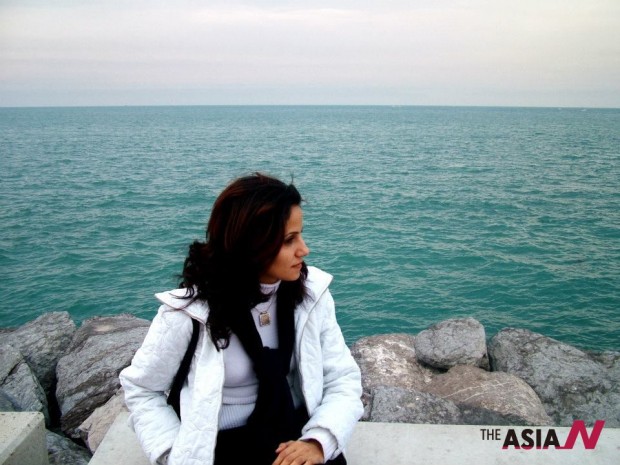
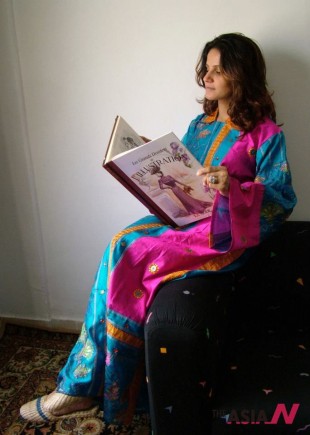
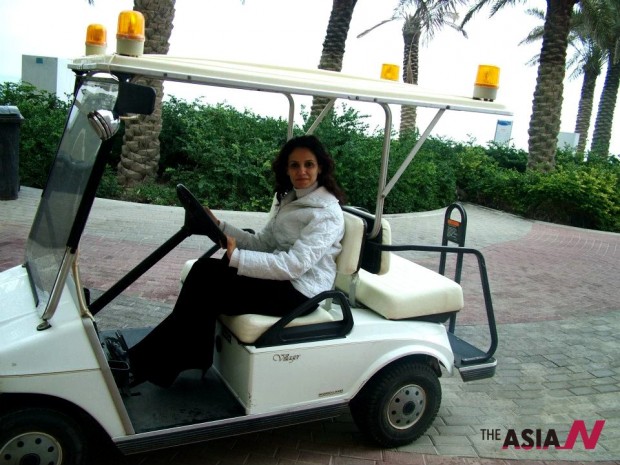
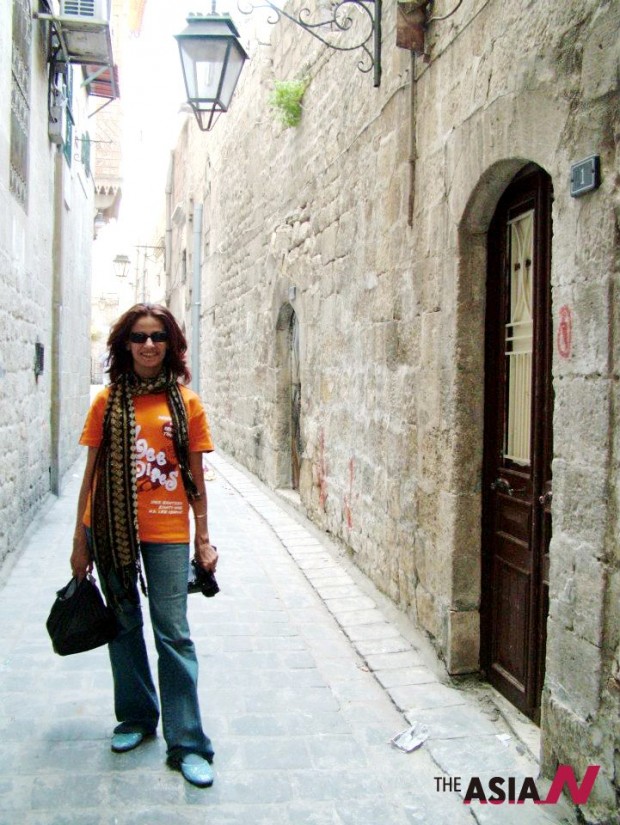
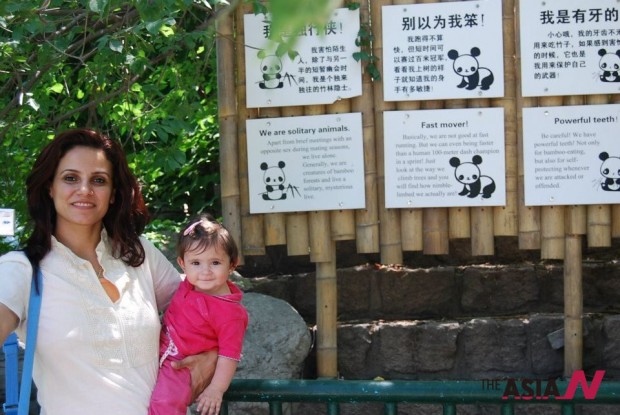
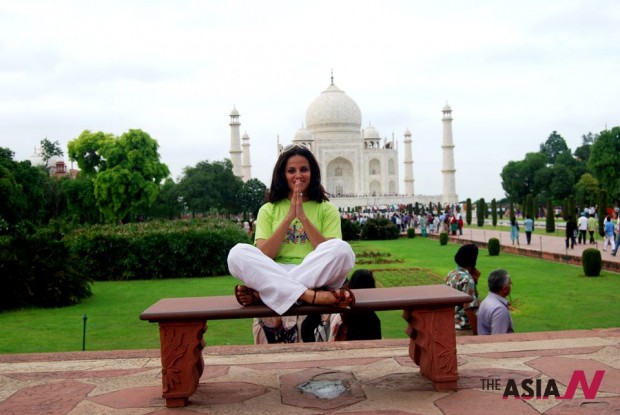






























































An important interview with promising director .. i really enjoy it